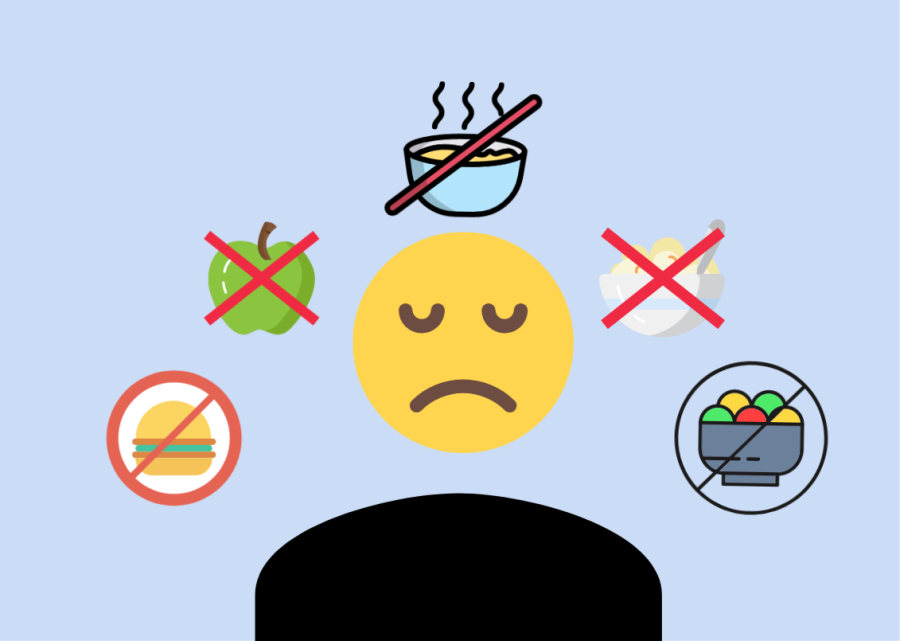Where Did All the Food Go?
How have food shortages been impacting people around the world?
In recent years, there has been more news about the fact that some food products are becoming harder and harder to find in grocery stores and local markets. However, there have always been food shortages happening in the United States and all around the world. How have certain food products becoming more scarce affected society in the past and present, and how will this problem affect society in the years to come?
According to informea.org, the definition of a food shortage is “when food supplies within a bounded region do not provide the energy and nutrients needed by that region’s population.”
Food shortages, unfortunately, have been happening all around the world for a long time. Christian Gerlach from tandfonline.com notes that when a famine took place in the Eastern hemisphere “in the early 1970s, there was scarcity in the world grain market, soaring prices and famines in several countries of Asia and Africa.”
Not only have countries in Asia and Africa been affected by famine, the United States has been affected by famines, too. According to Mark Rice-Oxely from csmonitor.com, “food prices also spiked in the late 1980s, and again in the mid 1990s after a drought crimped US grain supplies.”
But how does this relate to what is going on around the world today? There have been even more food shortages since the ones that happened in the 20th century, especially this year.
The worldbank.org explained how between May and August of 2022, “93.3 percent of low-income countries, 90.9 percent of lower-middle-income countries, and 93 percent of upper-middle-income countries have seen inflation levels above 5 percent,” lots of these countries even going into the double-digits.
The article continues by stating that “the share of high-income countries with high inflation has also increased sharply, with about 85.7 percent experiencing high food price inflation.”
While most Westminster students have most likely not gone through a food shortage that has drastically affected their life, everyone went through the economic crisis of inflation impacted by Covid-19 and the war against Ukraine that started at the beginning of this year.
There have also been food shortages linked to sickness. Earlier this year, talk about shortages of infant formula was all over the news. Both Katie Teague from cnet.com and Amrita Thakkar from tasteofhome.com covered this specific shortage: “Abbott Nutrition was forced to temporarily shutter a Sturgis, Michigan, plant manufacturing baby formula after several infants developed serious bacterial infections,” said Teague. “The closure resulted in major baby formula shortages across the US.”
“The recent baby formula recall has created even more pressure for parents across the country,” said Thakkar. “With grocery shelves turning up empty, parents have taken to social media to ask where they can find formula.”
Teague and Thakkar also list many other food items that the US has seen a shortage of this year, including liquor due to contamination, pet food and different meats due to supply chain issues (or also the case of meat sickness in animals), and so much more.
How do these food shortages even happen? Information from edengreen.com says that “climate change, cyberattacks, labor shortages, and scarce packaging materials” are all factors as to how food shortages can start in recent years. They mention that “while any one of these problems could be cause for concern, all of them together add up to the likelihood of further food shortages coming down the line.”
Gary Robbins, who reviewed the book The End of the World Is Just the Beginning by Peter Zeihan on ricochet.com, also explained Zeihan’s argument about the cause behind food shortages, saying that they could be caused because of the effects of the former Bretton System in World War II, where “the United States agreed to provide free passage [by making sure ships are at sea] worldwide and […] support ever-expanding free trade,” started to falter in recent years because of the recent COVID-19 pandemic, and because “many of the leading countries are facing a demographic disaster,” specifically naming China and Japan.
This then leads to the most important question: how can we slow down food shortages or stop them from happening? Worldbank.org says that “as [a] part of a comprehensive, global response to the ongoing food security crisis, [they are] making up to $30 billion available over a period of 15 months in areas such as agriculture, nutrition, social protection, water and irrigation.” They’re then going to donate all of this money to different countries through loans and projects.
Edengreen.com and Thakkar also mention how people shouldn’t be “panic buying”, hoarding, when food shortages come out and instead only take what they and their families need. By giving money to countries in need and not hoarding food unnecessarily, the world can try to stop the conflict of food shortages bit by bit.




